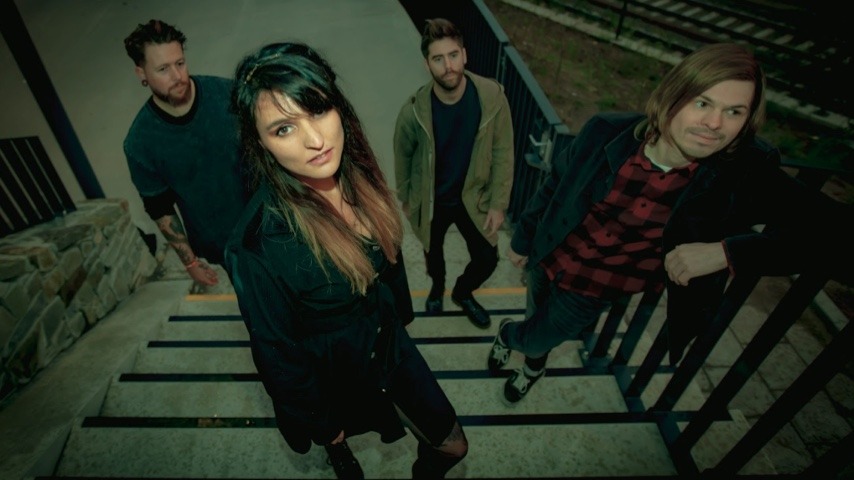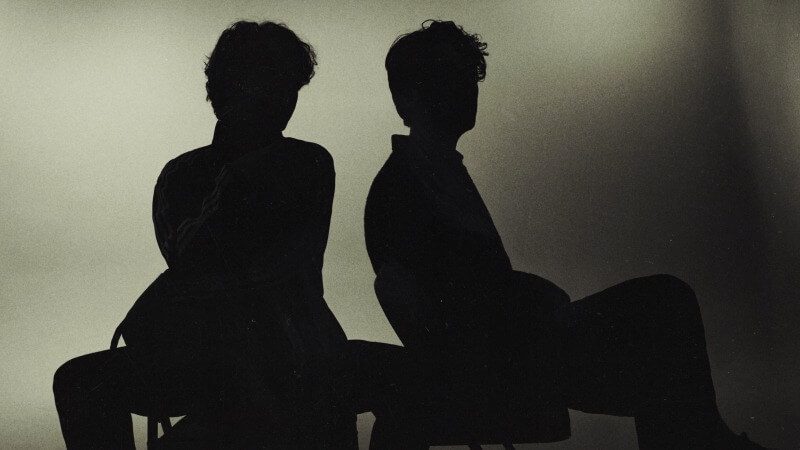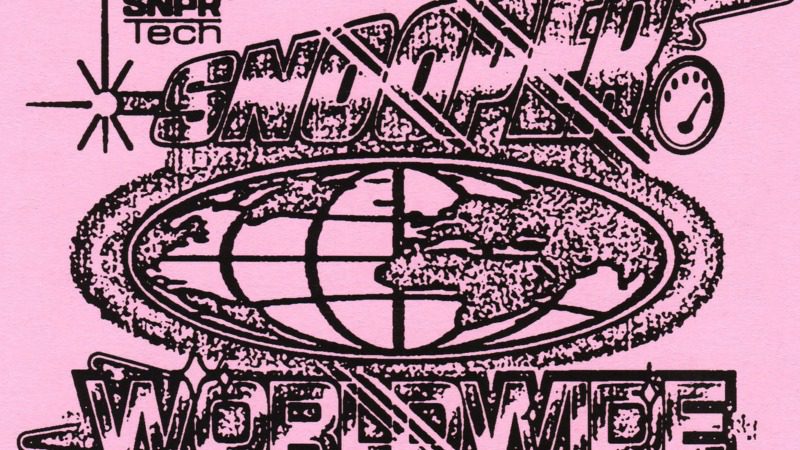As with anywhere in the world during these post-pandemic times, there are both positive and negative aspects to residing in Belgium right now. In Flanders, there is a rise in far-right extremism, rooted in the N-VA party and the Ons Land movement, which want Flemish independence from the homeland and an end to remaining lockdown curfews. But in more grounded Leuven, national virologist Marc Van Ranst has stressed science over skepticism in his regular TV broadcasts over the past year, calmly reassuring the populace that such low-contact isolation can truly save your life. And current Prime Minister Alexander De Croo is on the same cautious page, as he just curtailed Belgium’s scheduled Outdoor Plan for April, as the government worries that even schoolchildren can contract the mutating European virus and, sans symptoms, infect their unsuspecting families. Naturally, there’s a huge left/right uproar about the safety-conscious decision.
Isa Holliday is glad she lives in Leuven. British born, she moved there as a kid when her chemical-engineer father was posted there for his job in water treatment. The family loved the place so much, they stayed, she recalls. And it’s where she first took up bass guitar and started playing in sludge-metal outfits like Hearserider, which eventually morphed into the conversely-ethereal new dream-pop combo Slow Crush, in which she also handles vocal duties. The band’s murky, 4AD-textured debut disc from 2018, Aurora, formerly out of print, has just been given a triumphant new re-release on Quiet Panic Stateside and Church Road Records in the UK and EU, and from its dense opener “Glow” to the frothy “Drift,” a thundering “Beach,” and the layered coda “Pale Skin,” it’s a perfect blend of cathedral-ringing guitars buttressing Holliday’s pneumatic, almost aqueous singing voice, which is only clearly discernible on the sole ballad, “Collide.” Dark, velvety music for even darker death-shrouded times, all conceived in Leuven’s center of sanity.
Leuven-based Van Ranst was back in the news this week, worried that the rollback on April relaxations wasn’t going far enough. “He’s been taken out of the public eye for a bit, and I haven’t seen him on the news for a while,” notes Holliday, aware that at one point, viewers were even taking weekly bets on what color of V-neck sweater he would be sporting in his next appearance. “But he’s the Fauci of Belgium, and he was popular—or unpopular at times—for his stance on medical-type coronavirus things. And he was just trying to reveal the facts without taking anything political into account, because we’re talking about a virus, something that we’re trying to control, and we’re trying not to bring politics into that where it’s just not needed.” And there’s one more upside to life in Leuven, she adds, cheerfully. “It’s the city where Stella Artois is brewed, and the brewery is actually only a few kilometers away from my house—I’m in the city of Stella!,” she says.
Paste: So how has it been going in Leuven?
Isa Holliday: It’s been okay in Belgium. It hasn’t been a complete lockdown, so we are still allowed to leave the house, thank God. But all of the restaurants are closed. The shops are open, but there’s limited movement, and of course no shows anywhere, so that’s very sad. And it’s just so depressing, but we’re doing okay. Has it been almost a year? I think after a year, I’m almost getting used to it, oddly enough. And from the band side of things, a lot of things have happened over the past year. And I think had that all happened over a busy touring schedule, it would have been really hard. There would have been multiple nervous breakdowns.
Paste: Go on….
Holliday: So when the pandemic started and lockdown kicked in last March, our tour of the U.S. was cancelled, and this was just a few weeks before we were scheduled to come to the West coast. So then we slowly started to see other countries nearby have some issues with a lot of infections, with Italy being the worst in Europe. So before Belgium officially locked down, we were supposed to leave on three back-to-back tours, and the first started in Italy, so we checked off Italy as a no-go. But a couple of weeks before we were supposed to leave, we started looking at all the other countries we would be traveling through, and thinking, “When will the restrictions start popping up? Will this tour still be happening, and will anyone even be coming out? Or will they still be scared of going into crowded areas?” And this was all before anyone even knew what coronavirus was capable of. So it started off with this long stretch of touring just being canceled. And then in the summer, we had to have a lineup change—we switched out guitar players and had to break in a new one, who’s been replaced by an old friend of ours, so we’re glad for corona in that respect because we had more time to train our new guy. But bad luck always comes in threes, I suppose, so then there was news about allegations of sexual assault from our record label owner, so Holy Roar, the record label we were on, collapsed. All of the staff members quit, and all of the bands left, as well, us being one of those. So we were suddenly without a label. So we used the time to listen to, and get acquainted with, other labels, and thankfully, we weren’t pressured into a quick decision or anything like that. So we really looked at it from the heart, at what would make the most sense for us, and who we felt the best working with. And that’s when we made the decision to go with Quiet Panic in the U.S. and Church Road in the UK. So that’s our corona story so far. Oh, no, wait! There’s more! And it gets better! With all that work that we otherwise would have had to do on top of playing all those shows, which was a lot, we would have had no time to fine-tune Album No. 2. So without that touring, we actually spent a lot of down time perfecting the new songs that we were going to record. So we hit the studio only two weeks ago, and it has now all been recorded, thanks to corona. And I think it’s going to be an album that will knock people’s socks off.
Paste: Is there an album title yet? Song titles you’d like to share? Is it darker in post-pandemic theme?
Holliday: No, no. Although I suppose that gloomy love songs do lend themselves well to coronavirus lockdown. But I’m afraid I can’t share too many details just yet. So we’ll have more news to share later this year.
Paste: Who have you been sheltering in place with? Any pets?
Holliday: I have cats, so I’m here with my two cats. And they’re not black, actually! And I live with my boyfriend, and my mother lives down stairs—we have what they call in Belgium a kangaroo house, which is like a duplex, but with two separate living and kitchen areas, and a communal hallway. And in Belgium, people have been pretty good about following safety guidelines, so masks have been compulsory outdoors and in heavily populated areas and shopping districts. And even if you have to go to work, to an office, people have been pretty good about keeping their distance during this.
Paste: Have you got a day job?
Holliday: Yes, I do. Which is a curse and a blessing at the same time. I’m thankful that all of us have day jobs, if you want to call them that, or other occupations besides the band, so we’ve been able to keep afloat off of that while not being able to play shows. So we’re very fortunate in that, compared to a lot of our friends who are full-time musicians. And mine—and here’s the curse part of it—is, I work for a pharmaceutical company, so it’s very busy. I work for a lab that tests samples from people who are taking medicine, so there’s a lot of corona-related work that’s been going on for the past year, as you can imagine. But I can work from home, so for the most part, I’ve been working from home and only occasionally having to go into the office. And even then, everything there is so well-organized that social distancing can easily be maintained, and everyone is wearing masks. But the work that I do there is a very small cog in a very big wheel. But all small cogs are important, right? And if we can help these guys get the vaccine results that they need, then the sooner we can play a show again. It’s all interconnected.
Paste: Was that the career you were planning on? And how did you wind up playing bass in a band called Hearserider? It’s fun just to say the name.
Holliday: Well, is anything ever planned? I sort of fell into my day job. I did study nursing, so that’s my connection to what I’m doing now. And if you want to tie it in with Slow Crush as a band, a lot of our lyrics are about compassion and things like that. And I studied nursing, but I couldn’t handle the internship. With an internship, they throw you straight into the deep end, caring for oncology patients and stuff like that, and it was hard to distance myself from the job when I got home, because I was still thinking about the patients. So finding this job? I’m still able to help people, but without being on the frontlines, I suppose. But if you read the lyrics to Aurora, I think you can see a compassionate theme within the songs. Or a compassionate theme between the songs, I suppose.
Paste: But the lyrics are often this indecipherable sonic miasma that wraps itself around the guitar work.
Holliday: Yes. And that’s just the way that my vocals are. They’re sort of acting as an extra instrument, an additional instrument, instead of being way on top. And that just sits well with the genre, with the style that we play. Also, it is just how my voice works. I’m not a screamer or anything like that. My voice is just very soft, in general, and it works very well this way. And of course, I still play bass, as well. But Hearserider was a doom-metal band, on the completely opposite end of the spectrum, and it was a lot of fun. But up until Slow Crush, I’d only ever played bass in a band, so I’ve been used to hiding behind my bass cabinet, or just being as big as my bass cabinet, in general. So I was always in the background and I never sang, even though with my background -my mother is Filipina and my dad is British—I was always singing karaoke as a youngster. But I had never been the main singer in a band.
Paste: Was it terrifying, taking center stage behind the mic?
Holliday: Well, when Hearserider came to an end, our singer left and they were kinda sorta thinking about putting me on vocals at that point. And I did sort of attempt a Windhand type of vocal over slow doom songs, but the volume of the music in combination with my voice just didn’t work—it didn’t lend itself well to that doom sort of music. So we kept playing around, and then our guitarist Jelle [Ronsmans] came to the conclusion that he wanted to do this sort of indie-alternative-’90’s-influenced band, and I was into Radiohead and early Smashing Pumpkins, and those influences have always been with us. But we were also listening to a lot of Pity Sex back then, so we thought, “Okay, if doom doesn’t work for my voice, maybe this would work better.” And Britty [Drake] from Pity Sex, she had a has a very similar style of singing, so she was actually one of my inspirations to experiment with my voice, I suppose. And Pity Sex is a slightly rawer version of what we do, but if you listen to our first Ease EP you can probably hear some similarities. So we started jamming around, and we even covered a Pity Sex song as kind of a starter, a warm-up to see how the style would work. And we discovered pretty quickly that my voice lends itself better to that style of dreamy music, while we still wanted to keep the music based in guitars, but with some darker elements.
Paste: What studio effects or special mics do you use to make it sound so otherworldly?
Holliday: With the recordings now, I know we use a special mic that’s good at capturing the whispery effects of my voice, or just very quiet voices, in general. Because it is a struggle that we sometimes have, playing live. So I do have some special mics that I take along on tour with me, so I always use my own mics, knowing that those are the ones that work well with our setup. Like, if I were to just use the mics that they have at certain venues, they’d probably pick up more of the cymbals than they would of my actual singing voice. But because it’s that spooky shoegaze-y kind of style, a lot of reverb goes into everything, in general, so I tend to record double tracking in the studio, as well. I will sing things a couple of times so that we have that choral layer. So that just adds to that quiet, ethereal choir effect, I suppose.
Paste: So it’s shoegaze, but not exactly, right?
Holliday: Shoegaze is a tag that’s often thrown at us. But I think the misconception is just in our name. A lot of people like seeing a band with a female singer with ‘Slow’ in the band’s name. It just makes that connection with Slowdive, and honestly, a lot of people online are saying, “Oh, they’re just ripping off Slowdive.” But they have never been an influence for us. And nothing against Slowdive—they’re great. But the Pumpkins, Radiohead, even The Deftones? There was a lot more to ’90s alternative music than most people seem to remember!




